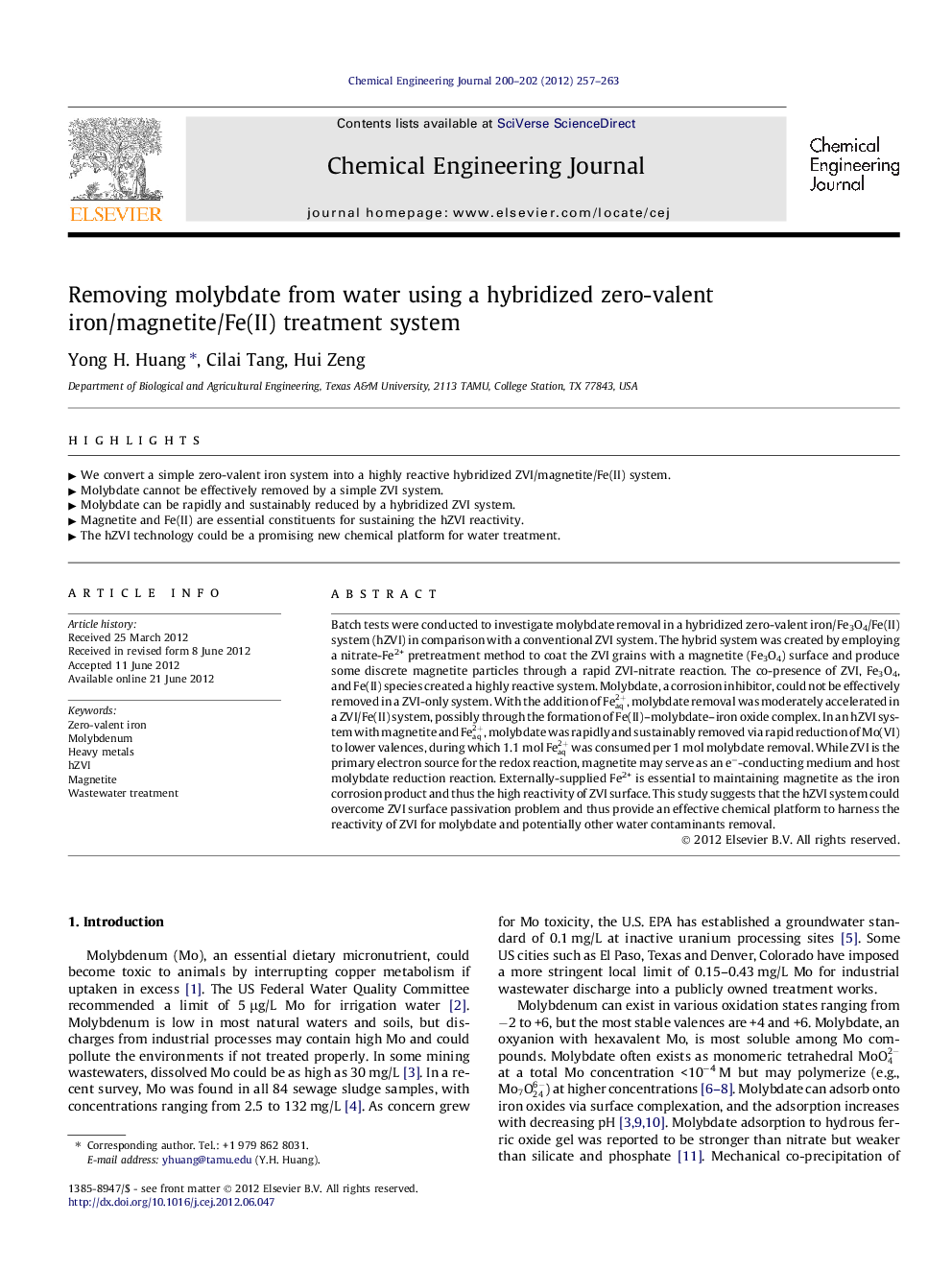| Article ID | Journal | Published Year | Pages | File Type |
|---|---|---|---|---|
| 149552 | Chemical Engineering Journal | 2012 | 7 Pages |
Batch tests were conducted to investigate molybdate removal in a hybridized zero-valent iron/Fe3O4/Fe(II) system (hZVI) in comparison with a conventional ZVI system. The hybrid system was created by employing a nitrate-Fe2+ pretreatment method to coat the ZVI grains with a magnetite (Fe3O4) surface and produce some discrete magnetite particles through a rapid ZVI-nitrate reaction. The co-presence of ZVI, Fe3O4, and Fe(II) species created a highly reactive system. Molybdate, a corrosion inhibitor, could not be effectively removed in a ZVI-only system. With the addition of Feaq2+, molybdate removal was moderately accelerated in a ZVI/Fe(II) system, possibly through the formation of Fe(II)–molybdate–iron oxide complex. In an hZVI system with magnetite and Feaq2+, molybdate was rapidly and sustainably removed via rapid reduction of Mo(VI) to lower valences, during which 1.1 mol Feaq2+ was consumed per 1 mol molybdate removal. While ZVI is the primary electron source for the redox reaction, magnetite may serve as an e−-conducting medium and host molybdate reduction reaction. Externally-supplied Fe2+ is essential to maintaining magnetite as the iron corrosion product and thus the high reactivity of ZVI surface. This study suggests that the hZVI system could overcome ZVI surface passivation problem and thus provide an effective chemical platform to harness the reactivity of ZVI for molybdate and potentially other water contaminants removal.
► We convert a simple zero-valent iron system into a highly reactive hybridized ZVI/magnetite/Fe(II) system. ► Molybdate cannot be effectively removed by a simple ZVI system. ► Molybdate can be rapidly and sustainably reduced by a hybridized ZVI system. ► Magnetite and Fe(II) are essential constituents for sustaining the hZVI reactivity. ► The hZVI technology could be a promising new chemical platform for water treatment.
